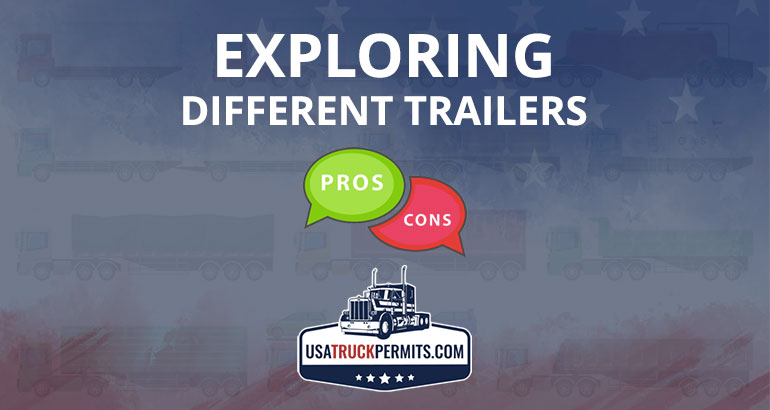
When you start your own trucking company, you will need to decide which trailer you’re going to haul loads with. You can always start by driving power only (without a trailer), but it’s recommended to have one already if possible. When you have your own trailer already leased or owned, it makes finding loads easier since you don’t have to rely on the broker or shipper to provide you with one.
In this blog, we will dive into the different trailer types to help you decide which trailer best fits you and your trucking company.
Flatbed Trailers
Flatbed trailers are a type of open trailers with no sides or roof, commonly used by semi-trucks. They are primarily used for transporting large or heavy items such as machinery, construction materials, pipes, and similar cargo. Flatbed trucking companies tend to be in demand in industrial states such as Texas, Georgia, California, and Illinois.
There are also different variations of flatbed trailers such as step decks, drop decks, and expandable RGN. Flatbed Truckers generally thrive in the Spring and Summer but get slower in the Fall and Winter. One profitable niche of flatbed trucking companies is the heavy haul.
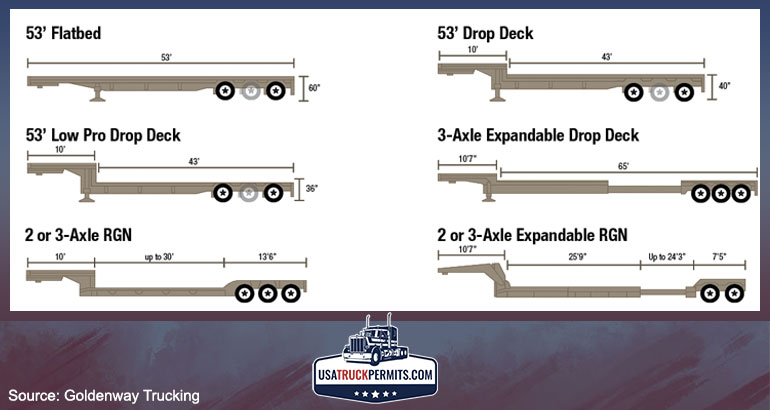
Pros:
Higher Rates: Flatbeds tend to have higher earnings per mile than other trailer types.
Versatility: Flatbed trailers have great versatility: they are capable of transporting a wide range of cargo, including pipes, heavy machinery, and oversized loads.
Ease of Loading: The design of flatbeds allows for easy loading and unloading from the sides, top, or rear. This can reduce the time spent on loading and unloading, which gives you shorter waiting times at shippers and receivers.
Cons:
Exposure to Weather and Debris: The open layout of a flatbed can cause the cargo to get wet, icy, or damaged by road debris. Flatbed tarps can help reduce this risk.
Securing Cargo: Your customers may require you to chain or tarp the load to your flatbed. This requires physical activity and additional time from the driver.
Seasonal Trucking: Flatbed trucking stays busy in the Summer and the Spring. It cools off in the Fall and Winter when industrial activity dies down.
Dry Van Trailers:
Dry van trailers are the most common type of trailers you’ll see on the road. They are fully enclosed trailers and are good for keeping cargo safe and dry. Shippers usually load and unload goods from the back so it’s important for a driver to be skilled at maneuvering their dry van. They are used a lot for transporting everyday items like clothes, dry foods, and electronics. They are a good choice for cargo that needs protection from the weather and theft.
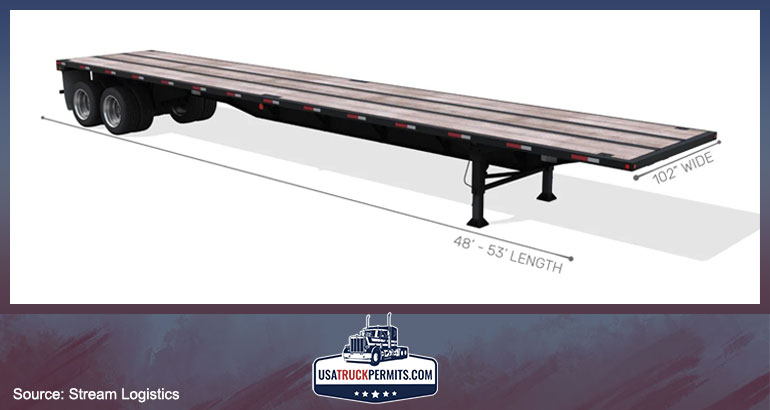
Pros:
Popularity: They are one of the most common trailer types, making them readily available.
Steady Work: Dry vans are widely used, which ensures steady work and steady rates throughout the year.
Ease of loading: Shippers will usually load dry vans for you. No tarping or chaining is required
Cons:
Lower Rates: Dry vans are more common and require less experience than other trailer types. This results in lower rates since more trucking companies are easily able to do dry vans.
Loading Delays: Since dry vans have to back into docks to be loaded, drivers are usually waiting for other trucks to finish loading when they get to the receiver site.
Refrigerated Trailers:
Refrigerated trailers, often called “reefers,” are refrigerated dry vans. Reefers are used to transport goods that need to stay cold or frozen, like food, medicine, and some chemicals. They have a cooling unit to keep the inside at the right temperature, so the goods don’t spoil during transport. They are enclosed like dry vans, which protect your cargo from the weather and debris.
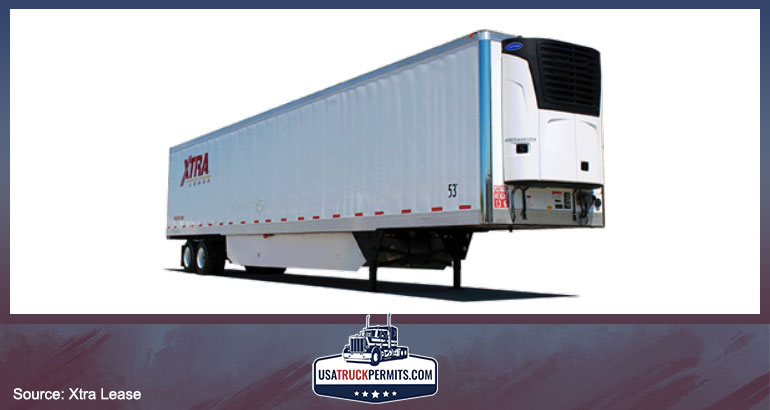
Pros:
Higher Rates: These trailers maintain specific temperatures, making them ideal for perishable goods like food and pharmaceuticals.
Versatility: They can also transport non-perishable goods, offering operational flexibility.
Year-Round Demand: Demand is generally higher for reefers since they transport essential items such as food, medical vaccines, and more.
Cons:
Cost: Reefers have refrigeration units that require fuel to run. Maintenance is more frequently required to keep these units running.
Maintenance: Regular maintenance is essential to ensure the refrigeration unit is working. Shippers also want the interior and exterior of the trailer to be in the best shape to avoid contamination of the cargo.
Requires Experience: The truck driver needs to monitor the temperatures of the trailer. If the cargo is damaged due to the wrong temperatures being kept, this can result in expensive insurance claims from the shipper.
Intermodal (Containers)
Intermodal trucking is a way of moving goods that combines different forms of transportation using containers. Containers are unloaded from ships and trains to trucks that provide intermodal trucking services. Intermodal trucking is mainly done in cities with ports and train yards. Intermodal trucking is important because it helps reduce costs, transports cargo across large distances, and is more efficient.
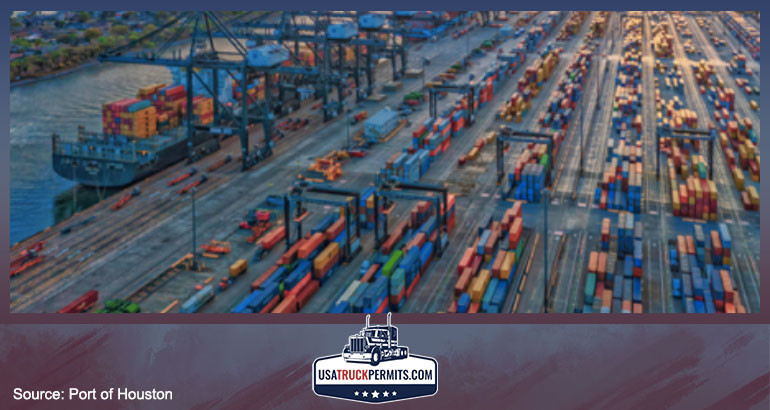
Pros:
Demand: Millions of containers enter US ports daily. As long as international trade is active, there will be a demand for intermodal trucking.
Flexible Work Hours: Most intermodal trucking is done at ports and delivered locally which allows drivers to be home daily.
Cons:
Not Available Everywhere: Intermodal trucking is only an option for truckers who live near ports and train yards. Port cities such as Houston, Los Angeles, and Tampa tend to have the highest demand for intermodal trucking companies.
Long Loading and Unloading Times: Intermodal trucks need to wait for cranes to load and unload them which can lead to long waiting times at the shipper and receiver.
Power Only Trucking
Power-only is a bit different. In this case, trucking companies provide only the truck and the driver, known as the “power,” to transport a shipper’s trailer. This type of service is useful when truckers do not have their own trailers and need a way to haul loads. Power-only services offer flexibility as they can haul various trailer types, depending on the client’s needs, making them a versatile option for many transportation requirements.
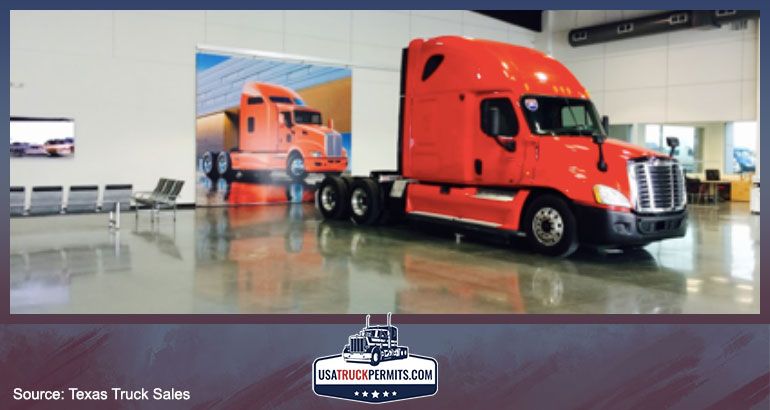
Pros:
Flexibility: You can haul different types of trailers that the shipper provides without the need to buy those trailers.
Low Start-Up Costs: You do not need to tie up cash in owning and maintaining your own trailers.
Cons:
Lower Rates: The rates tend to be lower due to the trucking not having to pay for trailers.
Harder to Find: Power-only loads are less available due to the requirement of shippers providing the trailers.
Hotshot Trucking
Hot shot trucking is all about urgent, time-sensitive deliveries. Hot shot trucking companies use smaller, more agile trucks to transport smaller loads quickly, often to meet immediate or emergency needs. This type of service is great for delivering cargo that’s needed as soon as possible, like replacement parts or urgent supplies. Hotshot trucks usually use gooseneck trailers and are pulled by pickup trucks or dually trucks. They can require a CDL if they are over 26,000 lbs or not require a CDL if they are under.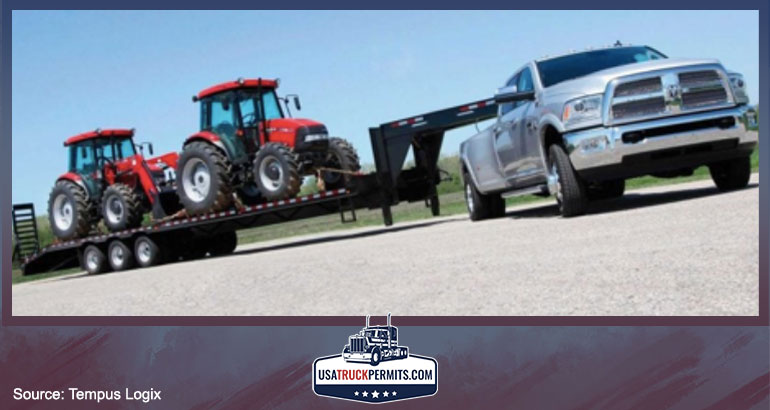
Pros:
Lower Costs: Hotshot trucks are cheaper than semi trucks. They require less diesel and less maintenance than traditional semi-trucks.
No CDL required: If your hotshot’s GVWR is under 26,000 pounds, you are not required to have a CDL. This helps make it easier to get drivers.
Cons:
Lower Rates: Your cost per mile is lower on a hotshot set-up but this also makes your pay rates lower than semi-truck rates. This balances it out but it’s important to remember that before you start.
More Pressure: Since you’re frequently delivering time-sensitive cargo, your room for error is lower in terms of late deliveries and breakdowns. Shippers and freight brokers will frequently deduct from your rate if you are late to deliveries especially when it’s time-sensitive.
Where To Get Trailers For Your Trucking Company
If you’re in the market for a new trailer. Several brands build and sell high-quality trailers. Some popular options are Great Dane, Utility Trailers, and Fontaine Trailers. Be sure to do your research, as each brand can have different quality, reliability, and pricing.
Choosing the right type of trailers for your trucking company is important in ensuring your company’s future success. Each different type of trailer has its own set of advantages and disadvantages. By understanding the different trailer types, trucking companies can make their operations more efficient, help fuel their growth, and plan how to get loads as you officially start your trucking company.
Ready to launch your trucking company with confidence? Don’t navigate the road alone. Join the hundreds of successful trucking entrepreneurs we’ve guided to success! Call us now at 832-787-2111 or submit an inquiry on our Contact Us page for Trucking authority and permits in the USA.
Let’s build your future together!